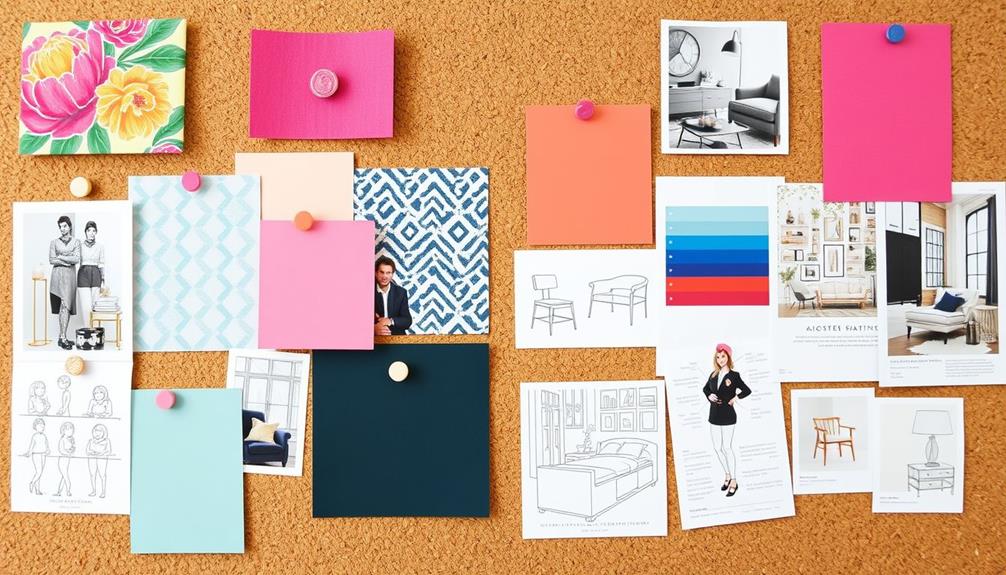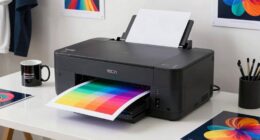Creating professional interior design mockups is an invaluable skill that enables you to visualize and fine-tune your ideas before implementing them in real spaces. In this article, we will discuss how to create interior design mockups effectively, the essential tools available, and best practices that will elevate your mockup game. With the growing trend in digital design, embracing software like PicMonkey and Canva can streamline your workflow and enhance communication with clients.
Understanding the importance of these mockups helps you recognize their role in successful interior projects—making them a crucial component of modern design practice.
Key Takeaways
- Visualizing ideas helps avoid costly design mistakes.
- Using software like Canva and PicMonkey simplifies the mockup creation process.
- Mockups enhance communication and understanding with clients.
- Removing backgrounds is essential for a polished final look.
- Choosing the right tools can improve efficiency and effectiveness.
The Importance of Interior Design Mockups
Interior design mockups play a pivotal role in the design process. They allow for an engaging approach to showcasing concepts, helping both designers and clients make informed decisions. Various aspects of interior design rely on these mockups for clarity, efficiency, and creativity.
Visualize Your Ideas
Visualizing designs becomes much simpler with the aid of interior design mockups. You can piece together different elements to create a cohesive visual representation. This not only provides a clear picture of the design but also enables you to explore various layouts, color schemes, and textures in a risk-free manner. By employing high-quality mockups, designers can ensure their ideas are conveyed effectively.
Enhance Communication with Clients
Enhancing communication with clients is crucial in the design world. Interior design mockups serve as tangible representations, making it easier to convey complex ideas that might be difficult to describe verbally. Clients can see exactly how their space will transform, which builds trust and encourages thoughtful feedback. This communication fosters collaboration, aligning everyone’s vision for the project.
Test and Refine Designs
Testing and refining designs is a vital part of the design process. Using mockups allows you to evaluate how different visual elements work together, identifying areas for improvement before execution. By simulating the final look, you can make necessary adjustments, avoiding costly mistakes down the line. This iterative process ensures your final product aligns closely with your original vision.

Essential Interior Design Mockup Tools
Choosing the right tools is essential for effectively creating interior design mockups. Many options are available, from professional-grade software to user-friendly platforms. Here’s an overview of some popular interior design mockup software and design platforms to elevate your projects.
Overview of Popular Design Software
Adobe Photoshop has long been a mainstay for designers, showcasing its versatility since 2004. For those new to design, programs like Google Slides, Canva, and PicMonkey offer simpler interfaces and quicker learning curves. Google Slides stands out for its cost-effectiveness and ease of layout adjustment, making it a favored choice among many. Adobe Express has free and premium versions, catering to different skill levels.
Comparison of Online Design Platforms
Many design platforms can suit various needs and budgets. Options like Homestyler provide a basic free platform, with additional features available through upgrades. Conversely, Infurnia offers more comprehensive plans at a monthly fee, catering to professionals requiring multiple user licenses. The following table outlines a few design platforms and their pricing:
| Platform | Basic Fee | Pro Fee |
|---|---|---|
| Homestyler | Free | From $3/month |
| Infurnia | $125/month | Additional $50/month/user |
| Live Home 3D Pro | $50 | Free with in-app purchases |
| Adobe Substance 3D Suite | $50/month | $20/month (pared-back version) |
| Spoak | $10/month (Play) | $100/month (Premium) |
Benefits of Using Mockup Generators
Mockup generators, such as Mediamodifier, provide the flexibility of quick content creation directly in your browser. This accessibility ensures a smooth workflow without the need for intricate software installations. Utilizing these tools simplifies the design process and maximizes your creativity, allowing you to focus on what matters most—your design vision.

How to Create Interior Design Mockups
Creating realistic interior design mockups can enhance your design process significantly. By following a step-by-step mockup guide, you can streamline your efforts and achieve professional results. Start with a clear vision and gather the necessary images that reflect your design elements for a polished outcome.
Step-by-Step Guide to Crafting Mockups
Begin the mockup creation process by allocating your time wisely. Studies show that designers typically spend about 20% of their project time selecting items, 15% changing perspectives, and another 30% working with software tools. Allocating your resources effectively can lead to better visuals that resonate with clients. Consider the following phases:
- Image Collection: Gather high-quality images showcasing desired design elements.
- Software Selection: Choose between popular tools like Adobe Photoshop for 65% of designers or explore alternatives like Canva for ease of use.
- Editing Techniques: Utilize Photoshop’s background removal and distort transform tools to create the desired look.
Collecting Images for Your Mockup
When collecting images, aim for real estate photos of empty spaces, as 92% of designers agree they provide clean backgrounds ideal for mockups. Selecting images with minimal distractions will allow your design elements to shine through. Ensure you have all the necessary visuals ready before starting your project.
Utilizing Design Platforms like Canva and PicMonkey
Design platforms like Canva and PicMonkey offer intuitive options for creating stunning mockups. By importing your collected images, you can arrange and fine-tune layouts to broadcast your vision effectively. Many designers (78%) prefer image-based mockups for their more realistic feel. A solid understanding of tools such as the magic wand and polygonal lasso is crucial, as 54% leverage the background removal tool extensively while 68% favor adjusting images with the distort transform feature.

Lastly, you can improve your mockup skills by practicing with simple changes like wall colors. This technique is recommended by 72% of designers and could serve as an excellent entry point for mastering the tools necessary for creating high-quality mockups. With these strategies in place, the journey toward creating stunning interior design mockups becomes a more manageable and enjoyable endeavor.
Best Practices for Interior Design Mockups
Implementing best practices for interior design mockups will significantly elevate your design projects. Understanding how to select the appropriate interior design mockup templates, perfecting the skill of removing backgrounds, and mastering the art of layering elements can lead to standout designs that effectively communicate your vision.
Choosing the Right Templates
Selecting suitable templates is a foundational step in the mockup creation process. The right interior design mockup templates offer a strong structure that aids in presenting your ideas cohesively. When browsing templates, seek options that align with your design aesthetic. Customizable templates can provide versatility, enabling you to tailor them specifically to your project requirements.
Removing Backgrounds for Professional Finish
A clean and polished appearance is essential for any mockup. Removing backgrounds from images can dramatically uplift the professionalism of your presentation. Tools like Paint can assist you in this effort, allowing you to create transparent images that integrate seamlessly into your designs. Opt for images with a white background whenever possible to facilitate easier editing and improve the overall quality of your mockup.
Layering Elements Effectively
Layering elements is crucial in creating depth and interest in your mockups. You should always start with the backmost layer and work your way forward, thoughtfully positioning each item to enhance the overall composition. This practice not only adds dimension but also invites viewers to explore different aspects of your design. Combining textures, colors, and varying focal points will ultimately create a vibrant and dynamic layout.

Conclusion
Mastering interior design mockups is essential for anyone looking to elevate their design proposals and improve overall project success. By utilizing the tools and best practices covered, you can enhance your mockups to vividly visualize your ideas. This not only aids in finalizing designs but also makes your proposals stand out in a competitive market, where a clear and engaging presentation can be the difference between winning or losing a client.
The mockup benefits extend beyond aesthetics; they facilitate effective communication with your clients, ensuring everyone is on the same page. A well-executed mockup can help articulate your creative vision, setting the framework for a seamless design process. When you present your ideas clearly, you enhance your prospects for securing new contracts and boosting client satisfaction.
As you embrace these strategies, remember that the art of creating professional mockups is an invaluable skill. It not only refines your design execution but also enhances your ability to connect with clients on a deeper level. By taking the time to develop compelling mockups, you’re investing in your future as an interior designer, positioning yourself to make a lasting impact in the industry.







